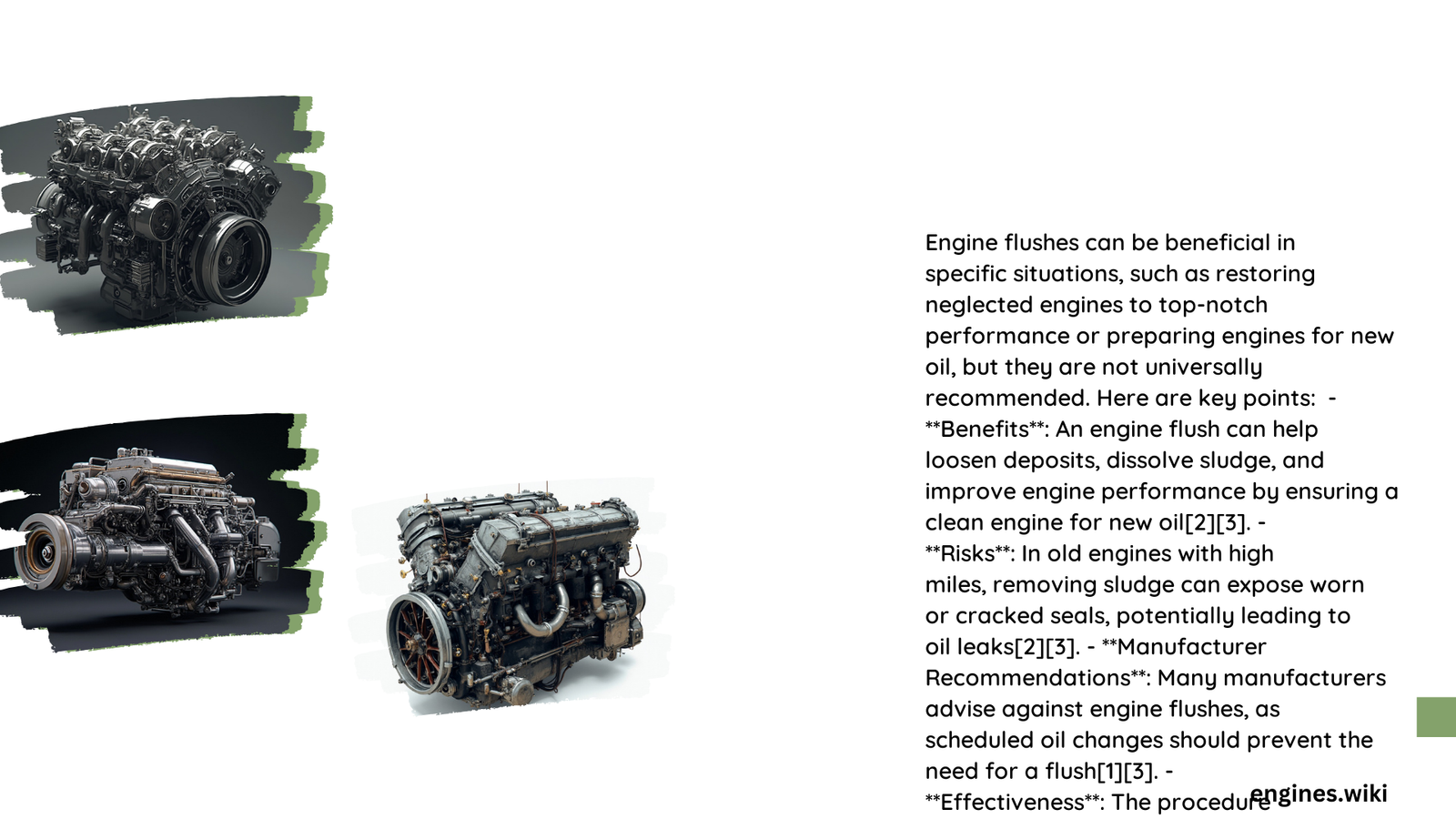Engine flushes represent a controversial maintenance technique that can potentially improve or harm your vehicle’s engine performance. While they promise to remove harmful deposits and enhance lubrication, the process involves complex considerations of engine age, condition, and manufacturer recommendations. Vehicle owners must carefully weigh the potential benefits against the risks of dislodging critical engine components or causing unintended damage.
What Are Engine Flushes and How Do They Work?
Engine flushes are specialized chemical treatments designed to clean internal engine components by dissolving accumulated sludge, varnish, and carbon deposits. These treatments typically involve:
- Introducing a cleaning solution into the engine
- Circulating the solution to break down contaminants
- Draining the solution along with dissolved debris
What Benefits Can Engine Flushes Provide?
| Benefit | Potential Impact |
|---|---|
| Sludge Removal | Improved oil circulation |
| Deposit Elimination | Enhanced engine performance |
| Lubrication Restoration | Reduced mechanical wear |
When Should You Consider an Engine Flush?

Vehicle owners should contemplate an engine flush under specific circumstances:
- High Mileage Vehicles
- Engines with over 75,000 miles
- Vehicles experiencing reduced performance
-
Cars with inconsistent maintenance history
-
Signs of Potential Engine Buildup
- Decreased fuel efficiency
- Unusual engine noise
- Reduced power output
What Risks Are Associated with Engine Flushes?
Potential risks include:
- Dislodging critical engine seals
- Causing unexpected debris movement
- Potential warranty complications
- Chemical damage to internal components
How to Safely Perform an Engine Flush?
Recommended best practices:
- Consult your vehicle’s manufacturer
- Use high-quality, vehicle-specific flush solutions
- Follow precise manufacturer instructions
- Consider professional mechanical assistance
What Do Experts Recommend?
Professional mechanics generally advise:
- Limit engine flushes to once every 2-3 years
- Prioritize regular oil changes
- Maintain consistent vehicle maintenance
- Use preventative maintenance strategies
Are There Alternatives to Traditional Engine Flushes?
Alternative approaches include:
- High-quality synthetic oils
- Regular oil analysis
- Preventative maintenance schedules
- Professional engine inspections
Key Takeaways for Vehicle Owners
- Engine flushes are not universally recommended
- Individual vehicle conditions vary
- Professional consultation is crucial
- Preventative maintenance remains paramount
Pro Tip: Always prioritize manufacturer recommendations and professional mechanical advice over generic maintenance strategies.
Technical Considerations
Modern engines, particularly those with advanced engineering, may not require traditional engine flush treatments. Newer synthetic oils and improved manufacturing techniques have significantly reduced the need for aggressive cleaning procedures.
Final Thoughts on Engine Flushes
While engine flushes can offer potential benefits, they are not a one-size-fits-all solution. Careful consideration of your specific vehicle’s condition, age, and maintenance history is essential.
Recommended Action Steps
- Review your vehicle’s maintenance manual
- Consult a certified mechanic
- Assess your engine’s current condition
- Make an informed decision based on professional guidance
Disclaimer: This guide provides general information and should not replace professional mechanical advice tailored to your specific vehicle.
